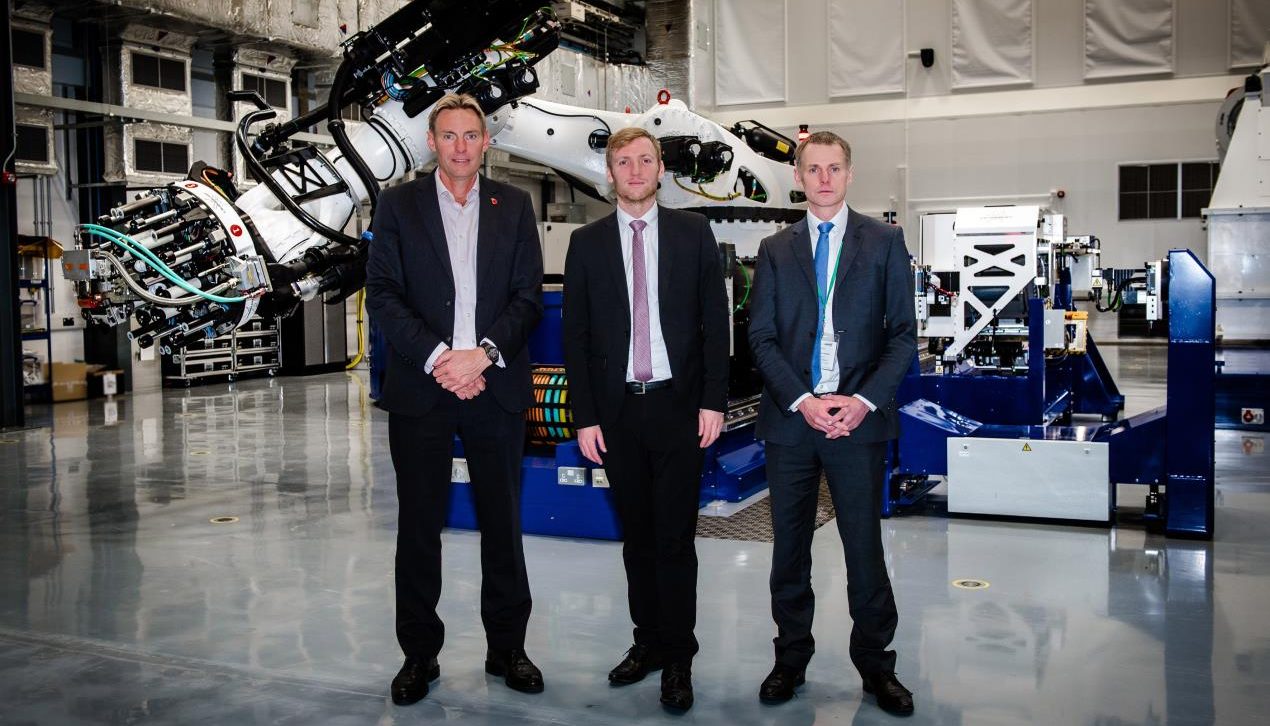A flagship £5m, 20-month programme, funded by the Department for Business, Energy and Industrial Strategy (BEIS) through its Net Zero Innovation Portfolio (NZIP) will set out a detailed roadmap for incorporating radically new composite-based components in the next-generation of offshore wind turbines.
Developing a manufacturing capability for the large components integral to next-generation turbines is vital if the UK is to accelerate the build-out of fixed and floating offshore wind. This will be critical to achieving net-zero by 2050 and building back greener to reap the economic benefits of green jobs growth and enabling the delivery of 60% UK content in offshore wind projects, as set out in the Prime Minister’s 10 Point Plan.
The Joule Challenge Phase 2 project will be delivered by a collaboration of two Catapult centres: The Offshore Renewable Energy (ORE) Catapult and the National Composites Centre (NCC), part of the High Value Manufacturing (HVM) Catapult. The project will set out to prove that composite materials can deliver significant performance and light-weighting opportunities that will be essential to addressing the technical challenge of developing the next generation wind turbine platform beyond 20MW.
A key element of the project is the engagement with the UK composite and offshore wind sectors to gather market intelligence and explore the potential for how these next generation components can be manufactured and delivered, with the emphasis on increasing content of the UK supply chains.
Phase 1 of the Joule Challenge, completed in 2020, proved the importance of composite materials in enabling the next generation of offshore wind turbines. Phase 1 predicted impressive reductions in component masses of up to 60% and a reduction of embedded carbon of up to 55%.
The project has already produced a Technology Development Plan for a 20MW demonstration turbine, incorporating a programme framework, identification of critical technology gaps, potential partners and stakeholders and a detailed technology development path.
The UK has significant expertise in High-Value Design and Manufacture (HVDM) and specifically the design and manufacture of large composite components that have been fundamental in positioning the UK as a global centre of excellence in the aerospace industry. The Joule Challenge Project will capitalise on the unique opportunity to trigger an increase in the UK share of high-value components in the global supply chain for offshore wind and become a global centre of excellence for offshore wind HVDM.
Phase 2 of the project will therefore focus on developing concept components utilising HVDM expertise to capitalise on existing UK capabilities. It will also support the Offshore Wind Sector Deal’s ambitions to drive down the cost of energy through lower cost manufacturing, increasing UK content and developing export opportunities of between £60-80m per year by 2030.
The Joule Challenge Phase 2 project was announced by Minister for Industry Lee Rowley during a visit to the NCC facility in Bristol. He said: “The UK is a global leader in offshore wind and this funding will help to develop the next generation of wind turbines, propelling us further to a cheaper, greener electricity grid.
“We are ensuring we have the manufacturing base to match our position as a trailblazer for clean renewable energy. This funding will help attract further investment, job and export opportunities to push forward our ambitious offshore wind programme.”
Tom Wildsmith, Business Development Manager with ORE Catapult, explains; “We predict that a 20MW prototype, incorporating increased levels of UK content and using lightweight composite materials, such as those that have been developed for advanced aerospace structures could be built by 2025.
“These next-generation turbines will be vital in providing the offshore wind capacity needed to meet the UK’s net-zero targets and there is a huge economic opportunity to be grasped too, through building a UK manufacturing capability.”
James Lightfoot, Senior Technology Programme Manager at NCC says; “The opportunity for more local content could be applied right across the turbine and provides a huge opportunity for UK companies to supply and manufacture these major components in a sustainable manner, thereby securing the UK as the world-leader in offshore wind turbine design and manufacture.”
The Joule Challenge project brings together UK government, industry and academia to stimulate a step-change in technology and manufacturing processes to make the turbines of the future today’s reality.



























